
Lifestyle Adjustments


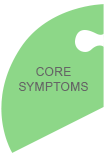
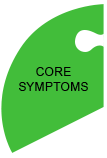
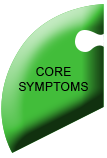
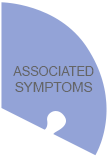
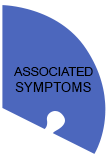
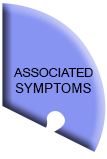



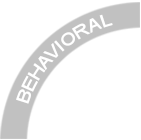
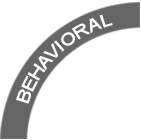
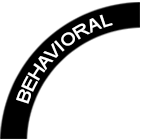



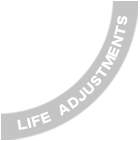
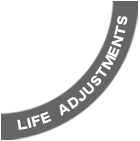
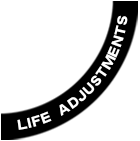
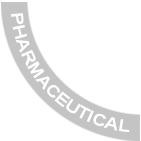
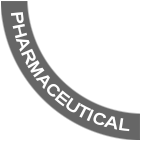
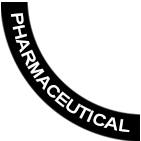
Many parents have tried lifestyle adjustments to their children’s daily routine in hopes of alleviating some of autism’s difficult symptoms, such as social anxiety, sleep disturbances, or behavioral problems. But which of these treatments, if any, are known to help? Using evidence-based therapies is a good way to know that a therapy is safe and effective. Below are several studies that address lifestyle adjustments in autism treatment.
Several lifestyle adjustments are discussed here, including:
- School selection
- Dietary supplements
- Animal therapy
- Mind-body training
 One lifestyle adjustment that parents may be considering is the type of school for their child. Inclusive preschools may improve autism outcomes, according to a study published in the journal Autism.
One lifestyle adjustment that parents may be considering is the type of school for their child. Inclusive preschools may improve autism outcomes, according to a study published in the journal Autism.
Researchers investigated the differences in outcomes when autistic children were placed in preschools serving only children with ASD, in preschools educating children with a variety of disabilities, or in preschools including children with ASD alongside those with typical development. While the 98 children studied were similar based on demographics and level of initial impairment, the 36 who attended inclusive preschools--where they learned alongside children with typical development--showed greater improvement on cognitive test scores than those attending non-inclusive preschools. Among those children attending inclusive preschools, those with the most severe social and behavioral deficits but at least baseline communicative skills experienced the greatest improvement.1
 Some children with autism have deficits in antioxidant activity, which normally detoxifies cells. An antioxidant is a molecule that is capable of neutralizing damage causing free radicals—most people know of the antioxidant Vitamin C. Glutathione is another antioxidant, and it is lower in some people with autism.
Some children with autism have deficits in antioxidant activity, which normally detoxifies cells. An antioxidant is a molecule that is capable of neutralizing damage causing free radicals—most people know of the antioxidant Vitamin C. Glutathione is another antioxidant, and it is lower in some people with autism.
Researchers at Arkansas Children’s Hospital Research Institute report that nutritional supplementation aimed at increasing glutathione activity improves autism-related behaviors. In the study, 40 children with autism who had low levels of active glutathione received supplements of methylcobalamin and folinic acid, factors in glutathione production and activation. After three months, changes in blood levels of active glutathione correlated with increased scores on behavior measurements. The children made large gains in expressive communication, daily living skills, and various social skills. Thirty-seven children completed the study with minimal side effects, mostly hyperactivity and reduced sleep.2
In another supplement-based report, researchers conducted a double-blind study investigating the potential of sulforaphane – a chemical present in vegetables like broccoli sprouts, kale, and bok choy – to ameliorate autism symptoms. The researchers gave sulforaphane supplements extracted from broccoli sprouts to 29 young men between the ages of 13 and 27 over a period of 18 weeks, and compared them to a group of 15 men receiving a placebo. After 18 weeks, the group receiving sulforaphane showed significant improvement in their scores on three different behavioral assessments administered by caregivers and physicians, while the control group experienced little change. The researchers then stopped treatment and continued to observe both groups for four additional weeks, noting that their scores returned to the baselines established before treatment began.3
 Researchers at the University of Queensland, Brisbane, Australia evaluated the effect of guinea pigs or motivating toys in socialization of ASD children with their typically developing peers. The researchers found the ASD children spoke to their peers, looked at faces, smiled, and laughed more in the presence of animals compared to toys. Future therapies might engage animals to improve interaction between ASD children and their typically developing peers, as well as therapists and teachers.4
Researchers at the University of Queensland, Brisbane, Australia evaluated the effect of guinea pigs or motivating toys in socialization of ASD children with their typically developing peers. The researchers found the ASD children spoke to their peers, looked at faces, smiled, and laughed more in the presence of animals compared to toys. Future therapies might engage animals to improve interaction between ASD children and their typically developing peers, as well as therapists and teachers.4Children with autism spectrum disorder (ASD) are known to experience difficulty with self-control – which manifests as temper tantrums and repetitive, rigid, or impulsive behaviors. If self-control difficulties are not addressed, additional learning problems can follow.
 On July 10, 2013, a study published in the online journal PLOS ONE demonstrated that a Chinese mind-body exercise could improve self-control in children with ASD. Forty-six children between the ages of 6 and 17 with the disorder were divided into two groups, matching them based on their age an IQ. For four weeks, the control group practiced Progressive Muscle Relaxation (PMR), a conventional behavioral intervention technique, while the experimental group underwent training in Nei Yang Gong, a holistic Chinese approach including psychoeducation, diet modifications, and mind-body exercises. The researchers found that children participating in Nei Yang Gong scored better than the control group on neurophysical tests, parental questionnaires, and electroencephalography (EEG) brain activity recordings measuring self-control.5
On July 10, 2013, a study published in the online journal PLOS ONE demonstrated that a Chinese mind-body exercise could improve self-control in children with ASD. Forty-six children between the ages of 6 and 17 with the disorder were divided into two groups, matching them based on their age an IQ. For four weeks, the control group practiced Progressive Muscle Relaxation (PMR), a conventional behavioral intervention technique, while the experimental group underwent training in Nei Yang Gong, a holistic Chinese approach including psychoeducation, diet modifications, and mind-body exercises. The researchers found that children participating in Nei Yang Gong scored better than the control group on neurophysical tests, parental questionnaires, and electroencephalography (EEG) brain activity recordings measuring self-control.5
| Evidence Legend | |
|---|---|
 |
Research-supported – a therapy with the highest level of evidence for safety and effectiveness based on rigorous scientific research and well-controlled clinical trials. |
 |
Promising – a therapy that is being actively researched in scientific studies and clinical trials with promising results |
 |
Suggestive – a therapy that has been known for some time but is not actively researched at present OR a novel therapy having current research of one or two preliminary studies showing suggestive results |
 |
No evidence available – a therapy that lacks any evidence-based support for effectiveness or safety |
| References: |
|

